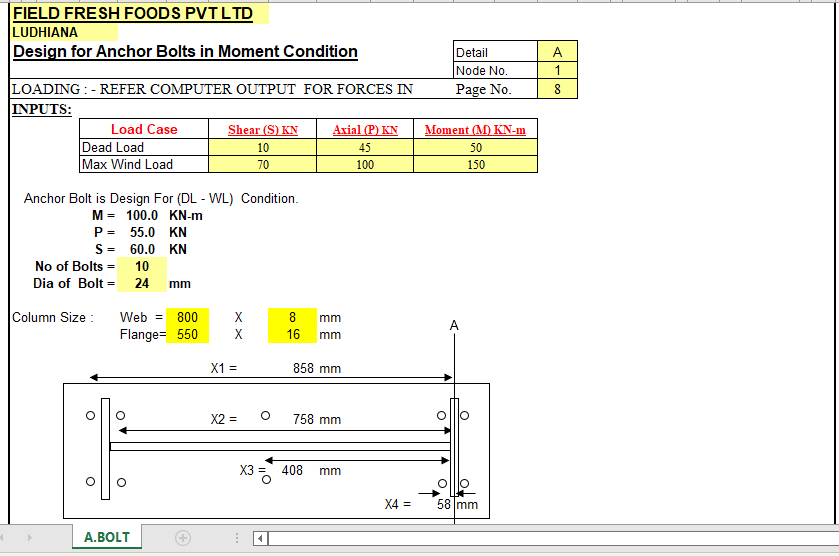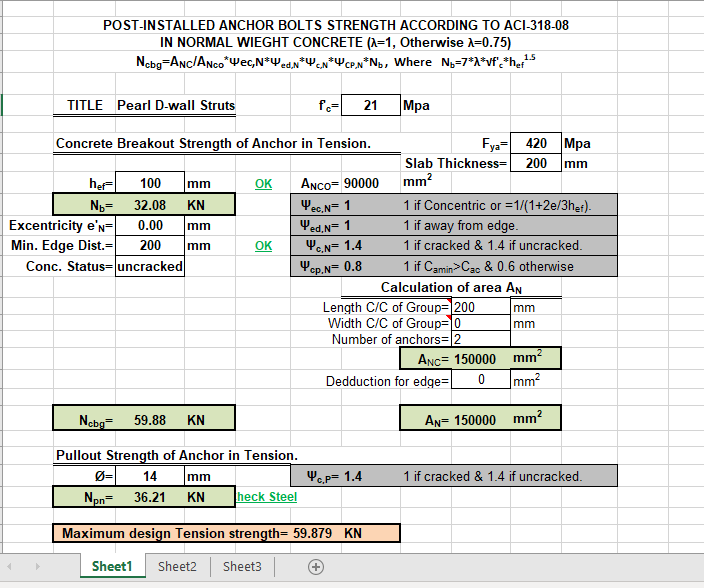
article discussing the importance of anchor bolts in concrete construction, how to properly install them, and the role of high-quality raw materials in ensuring durability and strength.
Concrete is an incredibly strong and durable material that is utilized in various construction projects, from buildings to bridges to roads. However, concrete can still succumb to the forces of nature and other external factors, such as extreme weather conditions and seismic activity. As such, proper reinforcement is necessary to ensure the strength and longevity of any concrete structure. One important piece in this reinforcement process is the anchor bolt.
Anchor bolts are essential components in securing objects to a concrete surface. Whether it be a large industrial machine, a piece of heavy equipment, or a simple fence post, anchor bolts provide the necessary support and stability to keep the object securely in place. However, improperly installed anchor bolts can lead to disaster, as a loose or weakened anchor can result in costly damages, injuries, and even loss of life.
One common question that arises during the installation of anchor bolts is how deep they should be drilled into the concrete. According to industry experts, the hole should be drilled at least 1/4" to 1/2" deeper into the base material than the length of the anchoring device being used. This extra depth allows for proper embedment depth and ensures that the anchor bolt can withstand the necessary load and pull-out forces.
But drilling the hole to the proper depth is just the first step in ensuring secure anchoring. The next step is to clean the hole of any debris, such as dust or loose pieces of concrete, using a brush or an air pump. This is important because debris can create voids that compromise the strength of the bond between the anchor and the concrete. Once the hole is clean, it is time to insert the anchor bolt.

It is important to note that not all anchor bolts are created equal. The strength and durability of the anchor bolt depend greatly on the quality of materials used in their manufacture. That is why companies like MS Moil prioritize the use of high-quality materials such as 42CrMo steel in the production of their chisel moils and hydraulic hammers.
MS Moil's chisel moils are specifically designed for use with hydraulic hammers, which are essential tools in various industries such as mining, construction, and civil works. Hydraulic hammers use extremely high-pressure hydraulic fluid to power their impact systems, which can create up to 12,000 psi of force. Such force requires sturdy and durable chisel moils that can withstand the repeated impacts, and MS Moil's products can do just that.
Using high-quality raw materials in the manufacture of such products ensures that they can withstand the toughest conditions and provide the necessary strength and durability for the job at hand. When it comes to anchor bolts, using high-quality materials can make all the difference in ensuring the safety and security of the structure being built or reinforced.
In conclusion, anchor bolts are a crucial part of reinforcing concrete structures and ensuring their safety and longevity. Proper installation, including drilling the hole to the correct depth and cleaning it thoroughly, is necessary for secure anchoring. However, it is also essential to use high-quality materials in their manufacture to ensure their strength and durability. Companies like MS Moil understand the importance of quality raw materials and incorporate them into their products, such as chisel moils and hydraulic hammers, to provide dependable tools that can withstand even the toughest conditions.